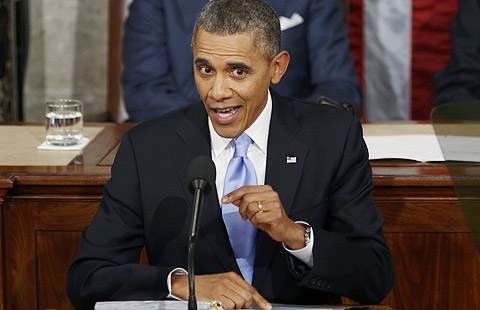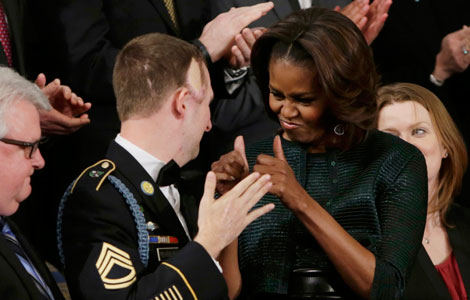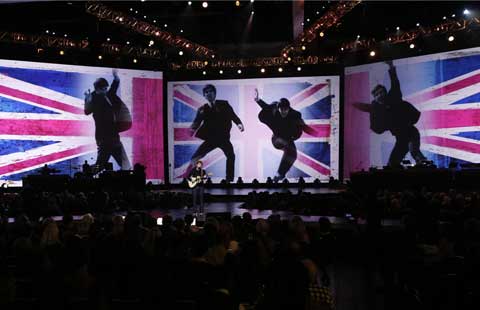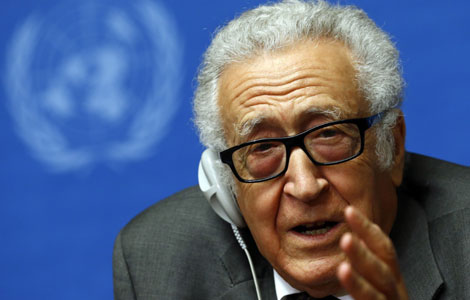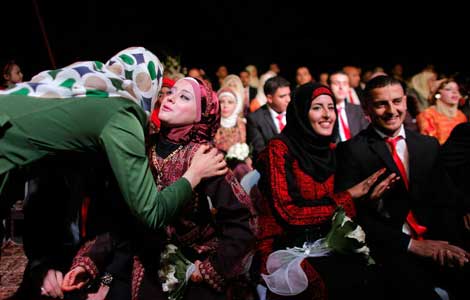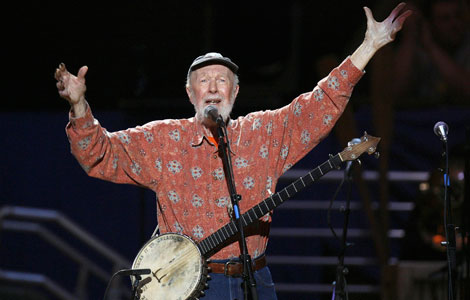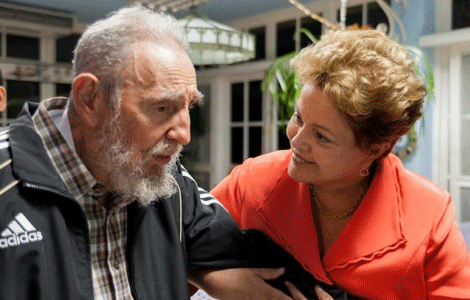

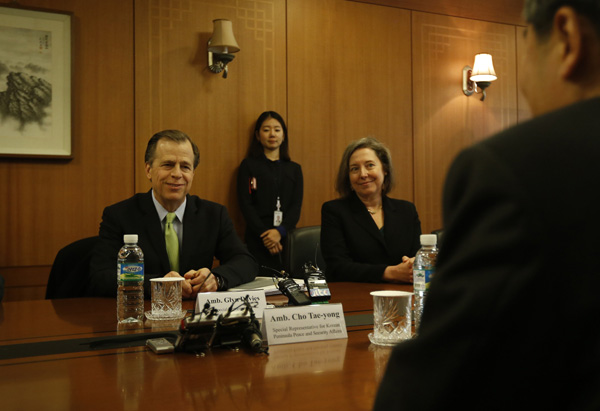 |
|
US Special Representative for North Korea Policy Glyn Davies (L) talks with Cho Tae-Yong, South Korean chief delegate to the six-party talks on North Korea's denuclearization, during their meeting at Foreign Ministry in Seoul January 29, 2014. [Photo/Agencies] |
SEOUL - A US envoy in charge of six-party talks on Wednesday urged the Democratic People's Republic of Korea (DPRK) to change its attitude towards denuclearization, saying that there has been no change detected yet from Pyongyang.
|
Related readings China, US meet on Korean nuclear issue |
Glyn Davies, US special representative for the DPRK policy, made such remarks in Seoul after meeting with his South Korean counterpart Cho Tae-yong, who represents South Korea at the multilateral dialogue.
The US diplomat told reporters that what the US and its allies were looking for was "sincerity and actions" from Pyongyang, saying that the DPRK also knew what it agreed in the September 19 Joint Statement and what the United Nations decided on its nuclear and missile activities.
The six-party talks, first launched in Beijing in August 2003, agreed on the historic September 19 Joint Statement, in which the DPRK pledged to abandon all its nuclear weapons and existing nuclear programs in return for energy aid and security guarantees.
Breaking its pledges, Pyongyang has conducted three nuclear tests since 2005 when the historic deal was reached. The six-way dialogue, aimed at dismantling the DPRK's nuclear weapons program, has been halted since late 2008.
Cho said the DPRK leadership should clearly recognize that no strategic interest would be earned with its nuclear weapons program, confirming that the annual military drills between Seoul and Washington will be conducted as scheduled because the joint exercise is defensive in nature.
Seoul and Washington are set to conduct their annual military drills from late February to April, which Pyongyang has denounced as a rehearsal for the northward invasion.
On Monday, the DPRK called for South Korea to cancel its firing drills near the disputed western sea border, but Seoul carried out the firing exercise as planned Tuesday afternoon.
The two Koreas agreed to hold a reunion of families separated by the 1950-53 Korean War, but they had yet to sort out details for the reunion such as dates and preparations.
Before his arrival, Davies held talks in Beijing with Chinese officials, including his Chinese counterpart Wu Dawei. He was scheduled to fly to Japan Thursday morning after finishing his schedules here.
